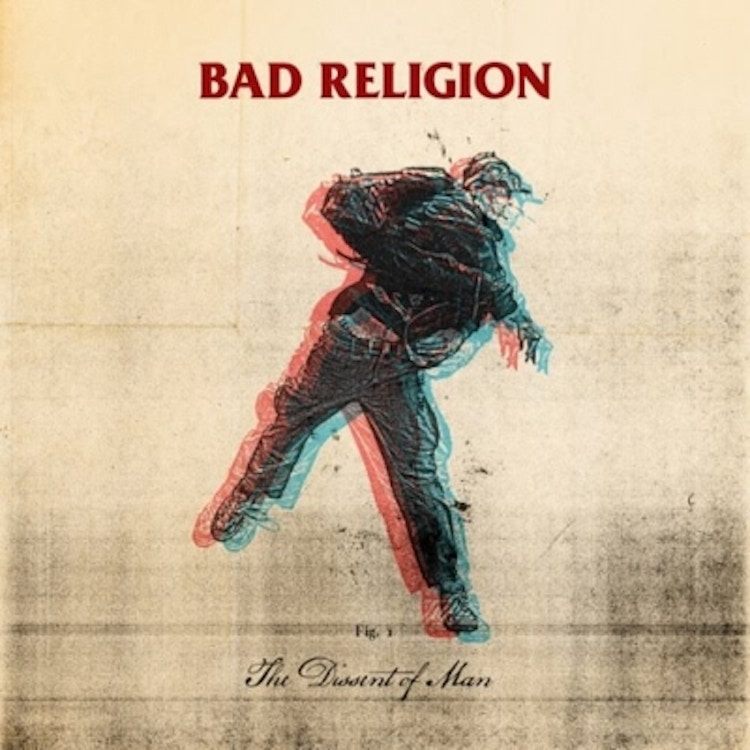"The Dissent of Man"

In more ways than one, the release of The Dissent of Man represents an enormous milestone for veteran Southern California punk rockers Bad Religion. Unveiled in the year of the band’s 30th anniversary, this new record is not only Bad Religion’s fifteenth, but also marks the first time four consecutive albums have been produced by the same steady lineup. Given the nature of punk, in which fervour and energy are favoured above all else, Bad Religion have for some years sounded out to prove that after all this time they “still have it”, that stability plus success does not equal stagnation. Whilst this is a task at which Bad Religion have once again excelled, The Dissent of Man is simultaneously a slightly softer and much more emotional experience than 2007′s raging effort New Maps of Hell.
Of course this more yearning aspect of Bad Religion’s collective personality is not new – neither is it apparent from the get-go here. Indeed, The Dissent of Man explodes out of the blocks with the kind of searing intensity that has characterised some of the heaviest and most militant of the band’s records. The fact that opener “The Day the Earth Stalled” features all of the BR’s recognisable hallmarks immediately puts the fan in a thrillingly familiar place. The song leaps rudely out of the speakers, its sub-90 seconds length leaving no time for an intro before Greg Graffin begins belting out his typically verbose and intellectual lyrics.
Those already familiar and enamoured with this aggressive Bad Religion style will find much to love and little to dislike on the album. What makes The Dissent of Man such an ideal marking point for Bad Religion’s anniversary, however, is the fact that by straddling heavier and softer sounds and lyrical themes, this album is also one of the band’s most accessible. On songs like “I Won’t Say Anything” and “Turn Your Back on Me”, the band present an almost gleefully straightforward and propulsive rock sound wrapped around Graffin’s vocals, here less raucous but more emotionally involving than usual.
Angelic backing harmonies – distinctively referred to as “the oozin’ aahs” by the band – are a longstanding feature of Bad Religion’s aural assault, but here they are perhaps more impactful than ever, given the sometimes more emotive subjects and styles of the lighter songs. The inclusion of a mixture of these softer rock efforts alongside the usual firebrand punk fare makes The Dissent of Man a more varied effort than its predeccesor, which was possessed of a kind of ceaselessly pounding surge which could be exhausting. Although New Maps of Hell is a superior record in terms of sheer thrash power, this new record doesn’t hold back – “Someone to Believe” is a particular thrill, an electrifying apparent ode to the liberation, as Graffin and co see it, of casting off religious belief.
Bad Religion fans will buy this record. Never more than a small deviation from their roots, the band have produced yet another album which, whilst not up with their very best, will satisfy the basic urges they have stoked for all these years. More importantly, then, let this be a recommendation to newcomers to Bad Religion – this is a vibrant, exciting and intelligent rock record, perhaps the ideal stepping stone to all the past classics this album deservedly and successfully commemorates. Here’s to another thirty.
Get the Best Fit take on the week in music direct to your inbox every Friday

Tunde Adebimpe
Thee Black Boltz

Julien Baker & TORRES
Send A Prayer My Way

Bon Iver
SABLE, fABLE






